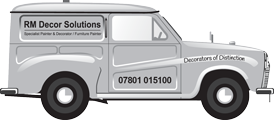Hiring a tradesperson safely
Try to cut down on unnecessary face-to-face contact as much as possible – we’ve advised our tradespeople to do the same. You can do this by:
- Sending a photo or video of the problem that needs fixing to the tradesperson. Many tradespeople have let us know that they’re happy to use these to provide an accurate quote, just remember to send as much detail as you can alongside them.
- Being supportive if the tradesperson needs to reschedule your appointment because they’ve developed coronavirus symptoms(like a high temperature and/or a new, continuous cough). Once you’ve hired a tradesperson, you should keep in contact with them throughout the process. Let them know if you or anyone in your household is ill – the tradesperson should do the same so work can be rescheduled if needed. You can send messages to us using our mobile 07801015100
Remove or cover items yourself so a tradesperson doesn’t need to touch them
Preparing for a job
There are steps that you can take to create a safe working environment in your home, such as:
- Keeping in touch with the tradesperson. Let them know if you’re part of a more vulnerable group, for example, you’re elderly or pregnant so that they can put any additional protective measures in place before visiting you.
- Not allowing work to go ahead if you, or anyone in your household, displays any symptoms of coronavirus.
- No work should be carried out in any household which is isolating or where an individual is being shielded, unless it is to remedy a direct risk to the safety of the household, such as emergency plumbing or repairs, and where the tradesperson is willing to do so.
- Clearing the room if necessary. For example, if you’re having a room painted, remove any furniture that could be in the way and take photos down from the walls, if possible. This will reduce the amount of contact that the tradesperson has with your possessions.
- Stocking up on biodegradable/recyclable paper cups and plates for the tradesperson to use.
- Making sure that hand washing facilities are available. Our tradespeople are being very vigilant by washing their hands with soap and water and using hand sanitiser regularly.
We’ve also advised our tradespeople to bring protective products on jobs, such as tissue, hand sanitiser and a plastic bag to dispose of used tissues.
Follow NHS guidelines to stand 2 metres apart
Keeping safe whilst work’s taking place
Whilst the tradesperson’s in your house, it’s important that you:
- Let them know where they can wash their hands as soon as they come into your house.
- Minimise physical contact, for example by avoiding handshakes.
- Practice social distancing. The NHS recommends staying two metres away from other people in your house, so stay away from the work area as much as possible.
- Have the windows open if you can – this helps clean air to keep circulating throughout the room.
Disinfect door handles, handrails, bathroom taps and other surfaces
What to do after the job’s done
Once your home’s been transformed, it’s a good idea to:
- Disinfect door handles, handrails and any other surfaces.
- Make sure to let the tradesperson know if you develop any symptoms of coronavirus, so they can take the appropriate precautions for themselves and anyone they’re in contact with.
Can tradespeople still work?
The latest government advice is that people can travel to and from work, where it’s absolutely necessary and they can’t work from home.
They have clarified that for tradespeople working in people’s homes:
They can carry out work as long as they’re well and have no symptoms and can stand 2 metres apart from anyone else in the house. They shouldn’t carry out work in any households that are self-isolating or if an individual is classed as vulnerable and being protected, unless the work is to sort a problem which is a direct risk to the safety of the household, like emergency plumbing or repairs, and where they’re willing to do so.
